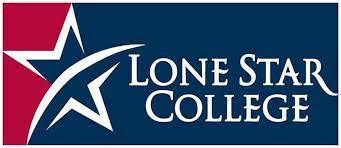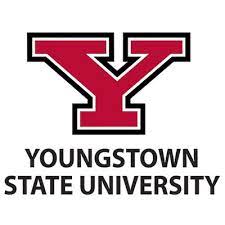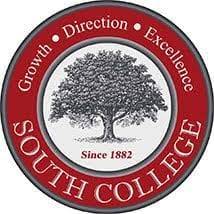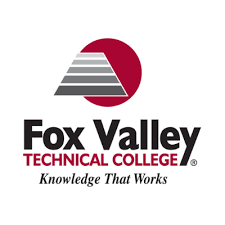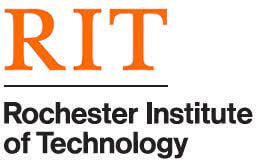Find Your Perfect School
A Power Plant Operator or Power Distributor and Dispatcher keeps the world moving by providing electrical power. So, how important is electricity to you, your family, or your business? The individuals working in this field are vital to our everyday existence… or, at the very least, our comfort!
If you are interested in the electrical field and are somewhat mechanically minded, perhaps a career in a power plant is for you. Here, we discuss the important facts you need… so you can be in the know! Check it out!
Related Article: The 40 Highest Paying Jobs With A Trade School Education
10 BEST SCHOOLS FOR A POWER PLANT OPERATOR OR POWER DISTRIBUTOR AND DISPATCHER DEGREE
Lone Star College
(On-campus and Online) AS in Electrical Engineering
LSC’s two-year AS in Electrical Engineering program consists of 60 credits that satisfy the core requirements for a 4-year bachelor’s degree. Once earned, the associate degree is a great credential for entry-level jobs in power plants. A bachelor’s degree, on the other hand, is a competitive edge for supervisory positions.
Students learn diverse technical skills vital for success in power plant occupations, including operators and dispatchers. The coursework includes electrical engineering principles, electromagnetic systems, and maintenance of electrical, electromagnetic, and electronic systems. Students also learn programming fundamentals for engineers, a foundation if they pursue higher studies later on.
Graduates are ready for jobs in diverse industries, including power generation, telecommunications and signal, and information processing systems. Their technical skill sets include operations of computer-assisted electrical systems, the performance of detailed calculations for power distribution, and collaborations with other personnel for safe operations.
While technical skills are a must in the workplace, these aren’t sufficient for success. Students in the program then develop transferable skills that strengthen their overall professional performance. These include communication, critical thinking, problem-solving skills, social perceptiveness, and active listening.
Programs Offered:
- Cybersecurity
- Nursing
Getting a foot in the door of well-paying power plant occupations becomes easier with the AS in Electrical Engineering degree from LSC! Start your journey now.
Youngstown State University
(On-campus) AAS in Electrical Engineering Technology
YSU’s AAS in Electrical Engineering Technology has a comprehensive curriculum consisting of 68 semester hours. The first-year general education courses focus on transferable skills development. The courses include writing and communication, professional and engineering ethics, and a success seminar. The fundamentals of electrical engineering technology, such as algebra, physics, and general chemistry, are also discussed.
The second-year major courses take the academic challenge to a higher level with more advanced topics. These are courses designed to equip students with trade-specific technical skills for power plant occupations. These include concepts of engineering technology, CAD technology, and circuit theory. Many of the major courses have classroom and laboratory components, such as circuit theory, digital electronics, and electrical machines.
With such a comprehensive education, graduates become gainfully employed in several related industries, including utility companies. Many also find jobs in the aerospace industry and electronic equipment manufacturers where power distributors perform vital duties.
Graduates may also earn a BSAS in Electronic Engineering Technology while currently employed as part of their career advancement plans. The associate credits can be transferred toward the bachelor’s degree in a regionally accredited institution.
Programs Offered:
- Biological Sciences
- Forensic Science
With the competitive nature of power plant occupations, it pays to have an educational edge. Get it ASAP with an AAS in Electrical Engineering Technology degree from YSU!
South College
(Online) AS in Electrical Engineering Technology
Students in South College’s AS in Electrical Engineering Technology program learn from experienced faculty members with impressive professional credentials. The diverse technical skills learned during the two-year program are so many that students must keep up with the fast-paced course sequence!
The coursework includes math, physics, and engineering fundamentals that set the foundation for understanding the advanced concepts in major courses. The coursework covers programmable logic controllers, digital electronics, computer-aided drafting, and AC/DC circuits. Students also acquire technical skills, including designing, implementing, and evaluating electrical systems and their components.
Aside from a keen interest in electrical systems, students must also develop their analytical, critical thinking, and problem-solving skills. These are soft skills that complement technical skills, particularly when dealing with teammates and solving issues in the workplace. Communication and collaboration skills are also important, too.
Graduates are known for their proficiency in electrical engineering technology principles and practices. Employment in power plant stations in various capacities is common.
This is a selective program with satisfactory standardized test scores – at least 830 on SAT I or 17 on ACT – as the main requirement. Applicants will only be considered for admission with a 2.5 high school GPA, too.
Programs Offered:
- Medical Assisting
- Software Development
Earn the AS in Electrical Engineering Technology degree from South College and open doors of opportunities as a power plant operator or dispatcher!
Indiana Tech
(Online) AS in Electrical Engineering Technology
The 100% online AS in Electrical Engineering Technology program at Indiana Tech is a popular option for freshmen students and adult learners for its convenience. Every course, including the laboratory sessions, can be completed online, thanks to the laboratory kits. Students use their respective kits at home and perform the laboratory experiments in a self-paced manner, too. The kit includes several tools, including measurement equipment that students can keep after graduation.
The 60-credit curriculum may take two years to complete on full-time enrolment. Students prepare for career success through intensive coursework in circuitry, including its analysis, creation, and testing. The coursework also focuses on developing skill sets in programmable logic controllers, analog and digital circuits, and electronic instrumentation and electrical machines. These are learned through a combination of academic coursework and laboratory experiences.
Indiana Tech offers its online students the option of participating in in-person, on-campus immersion events. Networking and socialization opportunities are the hallmarks of these events. Students can also avail themselves of on-campus services like Career Services and access its engineering labs.
Students also develop effective communication skills, particularly technical writing, since these are necessary for high-pressure workplaces. Graduates work in power generation plants and power utility companies.
Programs Offered:
- Child Development
- Entrepreneurial Studies
Indiana Tech’s AS in Electrical Engineering Technology degree is among the most recognized in the country. Earn it, and your career will certainly get a boost!
Fox Valley Technical College
(On-campus) AAS in Electrical Engineering Technology
FVTC’s AAS in Electrical Engineering Technology program can be undertaken as a full-time or a part-time student. All students must earn 70 credits to earn the degree. The average completion time is two years, but it will be longer for part-time students, although it’s also more convenient.
With regional accreditation from the Higher Learning Commission (HLC), FVTC has a mechanism for transferring credits in and out of its degree programs. The college has inked articulation agreements with more than 65 institutions across the State of Wisconsin, including members of the Wisconsin Technical College System.
Students prepare for their future careers as proficient electrical engineering technologists enjoying gainful employment in the electric industry. The academic and hands-on training covers electronic and electrical systems and embedded controls in machines, products, and processes. The technical skills learned here are useful in careers like power plant operators and dispatchers and assistants to engineers.
Learning outcomes include the competent applications of electronic theory in real-world situations, test equipment, electronic systems, and communication of technical information.
Due to the selective admission process, FVTC conducts a skills assessment process. Students must have at least a 2.75 high school GPA, satisfactory standardized test scores, or Companion or Compass scores.
Programs Offered:
- Information Technology
- Transportation
Jumpstart your career in the power industry by earning the AAS in Electrical Engineering Technology degree from FVTC! Your job application will be much more attractive with the credential.
Rochester Institute of Technology
(On-Campus) BS in Electrical Engineering Technology
RIT’s BS in Electrical Engineering Technology degree consists of 127 credit hours covering major and elective courses. Students gain a critical understanding of applied design, electronics and electrical theory, their applications, and the implementation of their systems. Such is the extensive education gained by students who may qualify for supervisory positions in the power industry!
Transfer of credits is accepted for the degree, but there are terms and conditions. First-year students without an associate degree but previously earned college credits (e.g., Advanced Placement courses) in science and math can apply. Transfer students with an associate degree in electronic technology, electrical technology, or engineering science are also welcome.
There are two concentrations offered – audio and telecommunications. The general education courses are the same, but there are differences in their major and elective courses. Graduates in both concentrations have core technical skills that make them qualified for entry-level jobs in the power industry.
The coursework covers essential topics in analog and digital electronics, circuit systems and their components, and control systems. The sequential coursework ensures that students establish fundamental skills before moving into more advanced topics, such as calculus to applied differential equations.
Programs Offered:
- Communications and Digital Media
- Game Design and Development
With RIT’s prestigious reputation, earning its BS in Electrical Engineering Technology degree will greatly boost your career in the power industry.
Florida International University
(Online) BS in Electrical Engineering
FIU, a public research university, is known for its excellent quality of instruction and such reputation applies to its BS in Electrical Engineering program. On average, students complete the program in four years, but the actual completion time depends on each semester’s course load.
The 128 credits required for graduation cover diverse general education topics, particularly in liberal arts and major courses. Applied Software Techniques in Engineering, Circuits Analysis, and Introduction to Linear Systems in Engineering are a few course titles. In the Power/Energy course category, the courses include Power Systems, Power Electronics, and Sustainable and Renewable Energy Sources and Their Utilization.
Academic preparation is strengthened by laboratory work in many courses, such as circuits and energy conversion. Intensive training is also part of student life in computers, nanotechnology, bioengineering, and controls. Students are encouraged to look beyond academics by staying updated on current and emerging trends.
FIU students are as much known for their technical skills as for their transferable skills. Aside from being lifelong learners, their training strengthens their creativity, critical thinking, and communication skills.
Applicants should submit a complete online application, official SAT/ACT scores, and high school transcripts. There’s an application fee, too.
Programs Offered:
- Accounting
- Biological Sciences
Reap the rewards of an FIU BS in Electrical Engineering degree! Your career in the power industry will be akin to a shining star with this academic credential.
Benjamin Franklin Institute of Technology
(On-campus) BS in Electrical Engineering
Individuals with an associate degree from Bunker Hill Community College or Roxbury Community College can transfer their credits to BFIT’s BS in Electrical Engineering program. BFIT also offers an AS in Engineering Technology and a Certificate in Electronics Technology, stacked for a bachelor’s degree.
Freshman and transfer students both learn technical and transferable skills vital for career success in the power industry. The major coursework starts with the fundamentals of electrical engineering with electrical power as the emphasis of study.
Computer engineering courses, such as embedded systems and C++ programming, are also discussed in depth. Circuit theory, control systems, and project management courses are on the curriculum since these are vital competencies in the power industry.
BFIT makes it easier for students to pay for their education, too, through the MentorWorks Education Capital program. Students avail of Income Share Agreement (ISA) financing, a form of study now, pay later. Every participant pays a specific percentage of their income but only after said income reaches a minimum threshold.
Programs Offered:
- Construction Management
- Cybersecurity
BFIT’s reputation as a premier engineering and industrial technologies college makes the BS in Electrical Engineering degree more attractive to employers. Earn it and watch your career shoot up!
University of Houston
(On-campus) BS in Electrical Power Engineering Technology
With the Engineering Technology Accreditation Commission’s accreditation, UH’s BS in Electrical Power Engineering Technology is among the best in Texas! Graduates possess a professional understanding of electrical power systems design, operations, troubleshooting, and other relevant topics. Aside from power plants and power utility companies, other common employers are petrochemical and electrical equipment manufacturing companies.
The comprehensive curriculum ensures that students will leave the program with above-par skillsets in diverse areas. These include programmable logic controllers, digital circuits and systems, electrical power systems and protection, and power quality issues. Students must also have electrical system design, project management, and microprocessor architecture before considering the degree.
UH provides access to its state-of-the-art laboratory where students can develop their skills in electrical power engineering. Updates to the curriculum and instruction are also made consistently to ensure that these are up to the university’s rigorous standards. Every course is also designed for trade-specific knowledge and skills so that students are well-prepared for the workplace.
Programs Offered:
- Human Resource Development
- Biotechnology
Make career advancement possible with a degree in BS in Electrical Power Engineering Technology from UH! The power industry is ever-evolving, so success means keeping up with the times through higher education.
University of North Dakota
(On-campus and Online) BS in Electrical Engineering
With its top-ranked reputation, UND’s BS in Electrical Engineering program attracts the best students’ keen interest in careers in the power industry. Depending on the courses that students take per semester, it can be completed in 4-5 years, and it’s available in both on-campus and online formats.
The 125-credit program provides students with a dynamic foundation in both contemporary and traditional approaches to electrical engineering. The courses are designed with intensive academic preparation and hands-on training resulting in the students’ unparalleled abilities in their trade. Students become adept at identifying issues, formulation, and evaluation of solutions, and effective implementation of solutions.
UND students are encouraged to pursue leadership roles in the workplace and industry. Their degree isn’t just about trade-specific skills but also about becoming productive employees or entrepreneurs. Thus, their training also includes transferable skills in communication, collaboration, and creativity.
Students who are active military personnel are eligible for the Air University Associate-to-Baccalaureate Cooperative (AU-ABC) program. Credits earned from the Community College of the Air Force (CCAF) can be transferred to the bachelor’s degree at UND.
Graduates are eligible to take the NCEES PE examination. Most, if not all, pursue a Professional Engineer license in one or more of the 50 states.
Programs Offered:
- Biomedical Engineering
- Data Science
Come and grab the opportunity to earn a prestigious degree from UND by enrolling in the BS in Electrical Engineering program!
FREQUENTLY ASKED QUESTIONS
What does a Power Plant Operator or Power Distributor and Dispatcher do?
As Power Plant Operators, Distributors, and Dispatchers are trained to provide us with electrical power, they have many responsibilities, such as:
- Do regular checks of equipment and repair accordingly,
- Oversee power-generating sources, such as gas, coal, hydroelectricity, wind, solar, or nuclear power,
- Regulate the flow of power, or stop turbines or generators if needed,
- Control the power going to electrical substations.
What types of Power Plant Operators are there?
Within the field of Power Plant personnel, there are several career options to consider, such as:
- Power Plant Control Room Operators
- Nuclear Power Reactor Operators
- Nuclear Station Operators
- Power Distributors & Dispatchers
- Hydroelectric Plant Operators
- And, many more!
How do I become a Power Plant Operator?
Generally, all one needs is a high school (or equivalent) diploma and on-the-job training, although some employers prefer that their applicants have a vocational school certificate or degree.
What skills will I need to become a Power Plant Operator?
One of the critical skills needed in this field includes mathematics. So, if math skills are not your strong suit, you may want to pursue another option. In addition, a science background will come in handy.
Other skills are just as important, too. You will need to be an excellent communicator, a great problem-solver, and detail-oriented. How are your concentration skills? Or, dexterity for repetitive work? Are you good with machinery and power tools? If you are good at these qualities, becoming a Power Plant Operator is for you!
Will I need to be licensed to excel in a career as a Power Plant Operator?
In most cases, Nuclear Power Reactor Operators are required to have a license; however, you may begin your career without it. You will need to meet the on-the-job training requirements to qualify for taking the exam administered by the United States Nuclear Regulatory Commission (NRC). Licenses must be renewed regularly according to your state’s requirements.
Depending on your employment description, you may be required to be a licensed engineer or a firefighter. This will also depend on your state’s requirements.
Medical exams and routine drug testing are also the norms in this career.
Where do Power Plant Operators find jobs?
Local utility companies employ most Power Plant Operators. Government-related jobs are also available. But, get ready to work rotating shifts… because, after all… electrical power requires 24/7 attention!
How much do Power Plant Operators, Distributors, and Dispatchers earn per year?
In these positions, the BLS states that the average salary, as of May 2022, was $97,570 annually, which translates to $46.91 per hour. The upper 10% earned $129,900 per year.
What are the differences between a Power Plant Operator and a Power Distributor/Dispatcher?
So, the various job titles in this field sound like the same position, right? Yes, but they do have different job descriptions and responsibilities.
A Power Plant Operator operates the machinery that produces the electricity. They also monitor them for safety and to make sure they are operating efficiently.
Power Distributors/Dispatchers, also known as Systems Operators, oversee the flow of electricity to substations and then to consumers. They control the current, voltage, and circuit breakers across the grid. They also monitor weather conditions and handle power outage emergencies, plus much more.
Is becoming a Power Plant Operator or Power Distributor difficult?
Becoming a power plant operator or power distributor can require a considerable amount of training and education. Depending on the specific position, you may need to complete a specialized degree program or apprenticeship.
In addition, many of these positions require a license or certification, which can be challenging to obtain.

